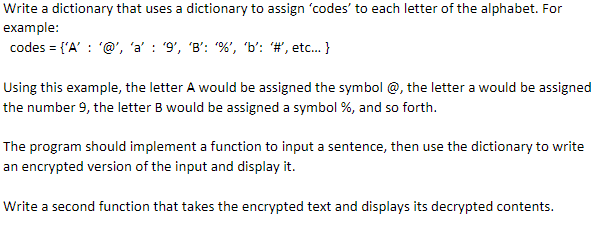In an application to appeal a decision, the applicant writes each question of lawas a single question. For example, was VCAT correct to decide that a retirement village tenancy agreement can only be terminated under section 16 of the Retirement Villages Act 1986? Quo warrantoA type of judicial review where the court requires a person to demonstrate the legal basis for their exercise of an office or official function.
Some types of documents must be served in person, while others can also be served by email, post or fax.SolicitorA commonly used name for a lawyer. This is referred to as the case being 'struck out'. This term also refers to when the court rules that parts of a claim or defence cannot relied on and 'strikes out' these parts. A writ is used unless an originating motion is required. See also originating motion. In employment matters, de novo judicial review may be used to re-examine a trial court's decision about employee benefits or mandatory arbitration.
For example, an appellate court could use de novo review to override a plan administrator's decision to deny an employee benefits in a lawsuit filed under the Employee Retirement Income Security Act . In this scenario, the courts may decide that by giving explicit discretionary authority to the plan fiduciary, employers could be subject to a more deferential standard of review that is more beneficial to employers. Nondischargeable debt A debt that cannot be eliminated in bankruptcy. There are different standards of review in law, and the standard of review that applies to a case has an important role in determining the outcome of an appeal. The courts use de novo judicial review when an appeal is based on a question about how the trial court interpreted or applied the law.
The appellate court examines the issue from the beginning, without deferring to the lower court's decision. The General Division of the Clermont County Common Pleas Court has original jurisdiction to hear all adult felony criminal cases and all civil cases regardless of the dollar amount in controversy. The Court also has the authority to issue injunctions and certain legal writs.
The Court has appellate jurisdiction over the decisions of some state and local administrative agencies, boards, and commissions. In addition, the Court presides over the Clermont County Grand Jury, which has the power to hand down indictments in criminal cases. The Court is responsible for the operation of the Probation Department, which supervises those criminal defendants placed on community control as part of their sentence.
Counsel urged that this court has jurisdiction to entertain the Motion because, on the authority of Samuel Kamau Macharia V KCB & 2 others eKLR jurisdiction is conferred by either the constitution or statute. That in the instant case, the application was challenging the merit of the decision of the PPARB. That the Applicant was entitled to challenge the merit of the decision because the PPARB had made a decision on matters such as the competence of the tender committee. The decision inRepublic Vs Ministry of Interior and Co-ordination of National Government Ex parte ZTE & Another eKLR was cited as an authority for that proposition. The individual, organisation or corporation who/which applies to the Court to start legal proceedings against another person or persons.
Also known as 'plaintiff' in admiralty and corporations matters and in some other courts. In the National Native Title Tribunal the applicant is the person or persons who make an application for a determination of native title or a future act determination. De novo judicial review describes a review of a lower court ruling by a federal appellate court. De novo judicial review is used in questions of how the law was applied or interpreted. It is a nondeferential standard of review, so it doesn't place any weight on previous court findings.
A de novo judicial review can reverse the trial court's decision. From Latin, meaning "from the new." When a court hears a case de novo, it is deciding the issues without reference to any legal conclusionor assumption made by the previous court to hear the case. An appellate court hearing a case de novo may refer to the lower court's record to determine the facts, but will rule on the evidence and matters of law without deferring to that court's findings. A trial court may also hear a casede novo following the appeal of an arbitration decision.
Pretrial services officers focus on investigating the backgrounds of these persons to help the court determine whether to release or detain them while they await trial. The decision is based on whether these individuals are likely to flee or pose a threat to the community. If the court orders release, a pretrial services officer supervises the person in the community until he or she returns to court. Grand Jury—A group of citizens empowered by a court to hear preliminary evidence and decide if a crime has been committed. If the grand jury decides that there is enough evidence to believe that an individual has committed a crime, it issues an indictment.
An individual who is the subject of grand jury proceedings or an indictment should consult with a criminal defense attorney. In camera reviewmeans a hearing or review in a courtroom, hearing room, or chambers to which the general public is not admitted. The trustee is a private individual or corporation appointed in all chapter 7, chapter 12, and chapter 13 cases and some chapter 11 cases.
The trustee's responsibilities include reviewing the debtor's petition and schedules and bringing actions against creditors or the debtor to recover property of the bankruptcy estate. In chapter 7, the trustee liquidates property of the estate, and makes distributions to creditors. Trustees in chapter 12 and 13 have similar duties to a chapter 7 trustee and the additional responsibilities of overseeing the debtor's plan, receiving payments from debtors, and disbursing plan payments to creditors. Equitable Pertaining to civil suits in "equity" rather than in "law." In English legal history, the courts of "law" could order the payment of damages and could afford no other remedy . A separate court of "equity" could order someone to do something or to cease to do something (e.g., injunction). In American jurisprudence, the federal courts have both legal and equitable power, but the distinction is still an important one.
For example, a trial by jury is normally available in "law" cases but not in "equity" cases. Attachment—A legal process after a judgment where assets (cars, bank accounts, personal property, etc.) are seized by government officials as payment for a debt. A true legal dispute which leads to a genuine lawsuit rather than merely a "cooked up" legal action filed to get a court to give the equivalent of an advisory opinion. Federal courts, including the U.S. Supreme Court, will only consider an "actual controversy", on appeal, since they will not give... Settlement Parties to a lawsuit resolve their dispute without having a trial.
Settlements often involve the payment of compensation by one party in at least partial satisfaction of the other party's claims, but usually do not include the admission of fault. Opinion A judge's written explanation of the decision of the court. Because a case may be heard by three or more judges in the court of appeals, the opinion in appellate decisions can take several forms. If all the judges completely agree on the result, one judge will write the opinion for all. If all the judges do not agree, the formal decision will be based upon the view of the majority, and one member of the majority will write the opinion. The judges who did not agree with the majority may write separately in dissenting or concurring opinions to present their views.
A dissenting opinion disagrees with the majority opinion because of the reasoning and/or the principles of law the majority used to decide the case. A concurring opinion agrees with the decision of the majority opinion, but offers further comment or clarification or even an entirely different reason for reaching the same result. Only the majority opinion can serve as binding precedent in future cases. Judge An official of the Judicial branch with authority to decide lawsuits brought before courts. Used generically, the term judge may also refer to all judicial officers, including Supreme Court justices. Due process In criminal law, the constitutional guarantee that a defendant will receive a fair and impartial trial.
In civil law, the legal rights of someone who confronts an adverse action threatening liberty or property. Appellate About appeals; an appellate court has the power to review the judgment of a lower court or tribunal. For example, the U.S. circuit courts of appeals review the decisions of the U.S. district courts. An agreement between two parties in a case to either forego litigation or stop current litigation in exchange for a price. In the personal injury context, a settlement would usually involve payment from the defendant to the plaintiff, after which the case would not be tried in court. In a civil case, the defendant's written response to the plaintiff's complaint.
It must be filed within a specified period of time, and it either admits to or denies the factual or legal basis for liability. Normally a defendant has 30 days in which to file an answer after being served with the plaintiff's complaint. In some courts, an answer is simply called a "response". Zoning—The legal process for regulating buildings and land use in a city or other local government unit for the betterment of all people in the community.
A property owner with a zoning or variance issue should consult with a real estate attorney. Subsection 4 may seem to be unreasonable. The reasons why the time frame was being addressed in that sub-section, in my view, is the very nature of the matters that pertain to PPARB decisions. They relate to the long procedures of public procurement of services or goods vis avis public spending. Unless such matters are concluded expeditiously, public spending which is ordinarily pegged on government financial years will become cumbersome. I have looked at the case of Republic Vs Public Procurement Administrative Review Board & Another eKLR cited by Mr. Gachuba but I have not and I am unable to conclude that the sub-section was declared unconstitutional.
It was only held that, the sub-section did not oust the High Court jurisdiction to hear and determine matters touching on PPARB outside the timeframe given therein. Understanding how the different standards of review work and which ones apply in a given scenario is important in evaluating the likelihood of winning an appeal. A client might not want to pay their attorney to represent them in an appeal they aren't expected to win. In reality, de novo trials are fairly uncommon due to the time and judicial resources required to try the facts of a case more than once.
However, de novo review of legal matters on appeal is quite common. The individual, organisation or corporation against whom/which legal proceedings are commenced. Also known as a 'defendant' in admiralty and corporations matters and in some courts. In an appeal it is the party who/ which did not commence the appeal.
In a civil case, the reasons why the defendant disputes the claim against them. A 'Defence' form is a document filed at court by the defendant to notify the court and the plaintiff that they dispute the claim, and it may also include the reasons why they do not owe the money claimed. Wage garnishment A nonbankruptcy legal proceeding whereby a plaintiff or creditor seeks to subject to his or her claim the future wages of a debtor. In other words, the creditor seeks to have part of the debtor's future wages paid to the creditor for a debt owed to the creditor.
Procedure The rules for conducting a lawsuit; there are rules of civil procedure, criminal procedure, evidence, bankruptcy, and appellate procedure. The first court to hear the case, as opposed to an appellate court which hears appeals of decisions made in trial courts. The right of all persons to receive the guarantees and safeguards of the law and the judicial process.
It includes such constitutional requirements as adequate notice, assistance of counsel. And the rights to remain silent, to a speedy and public trial, to an impartial jury, and to confront and secure witnesses. A private person authorized by another to act in his or her place, either for some particular purpose, as to do a specific act, or for the transaction of business in general, not of legal character.
This authority is conferred by an instrument in writing, called a letter of attorney, or more commonly a power of attorney. A mini-trial, which may be held in place of a court trial and conducted by a single person or a panel of three people who are not judges. The arbitrators generally are former judges or experienced lawyers.
Generally arbitrations are less expensive and occur more quickly than jury trials. Arbitration awards may be converted into a legal judgment on petition to the court, unless some party has protested that there has been a gross injustice, collusion or fraud. Workers compensation—A system for paying medical bills and lost wages to people injured while on the job. Workers compensation does not involve the determination of fault or negligence. A person or business concerned with a work place injury issue should consult with a workers compensation attorney. Summons—A legal document issued by a clerk of courts informing a defendant that a complaint or petition has been filed against them and indicating that an answer must be filed within 28 days in Ohio.
A party who fails to respond to a summons and complaint faces a possible default judgment. An individual receiving a summons and complaint should consult immediately with an attorney who handles litigation. Quit claim; also quitclaim deed—To legally transfer all the property rights that a person has in land, without specifying what those rights are or guaranteeing that those rights exist. A quitclaim deed has different legal language that a warranty deed and offers the recipient less protection from the claims of others. An individual concerned about a quit claim deed should consult with a real estate attorney.
Indictment —A legal document issued by a grand jury charging an individual or individuals with a crime, usually a felony. A person named in an indictment should consult with a criminal defense attorney. Health care power of attorney —A legal document giving one person the power to make decisions about the health care of another. Foreclosure—A lawsuit where a lender-mortgage holder can take a debtor-owner's real estate for non-payment of the mortgage debt.
Anyone faced with a foreclosure suit should consult with a real estate attorney or an attorney who litigates. Deed—A formal legal document transferring an interest in land from one party to another. Deeds have specific legal requirements for form and how they must be signed to be official. A party should consult a real estate attorney to make sure a deed is prepared properly. Court of Appeals—A higher level court that reviews the final decisions of trial court for legal error. A case generally only goes to a court of appeals after a verdict or other major decision of a trial court.
A mini-trial, which may be for a lawsuit ready to go to trial, held in an attempt to avoid a court trial and conducted by a person or a panel of people who are not judges. The arbitration may be agreed to by the parties, may be required by a provision in a contract for settling disputes, or may b... Occasionally the two parties on opposite sides of a lawsuit or on an appeal from a trial judgment will agree upon certain facts and sign a statement to be used in court for that purpose. Agreed statements are only used when the only remaining dispute boils down to a question of law and legal argu...
A statement made by a party to a lawsuit or a criminal defendant, usually prior to trial, that certain facts are true. An admission is not to be confused with a confession of blame or guilt, but admits only some facts. In civil cases, each party is permitted to submit a written list of alleged fa... An employee (usually a non-lawyer) of an insurance company or an adjustment firm employed by an insurance company to negotiate an early settlement of a claim for damages against a person, a business or public body . While a fair and responsible adjuster can serve a real purpose in ge... The Applicant instituted a suit to challenge a public procurement process for the provision of security services to the Judiciary.
The Applicant also made an application for a stay to restrain the Respondent from entering into contracts for the provision of security services with Lavington Security Services Ltd and Bedrock Security Services Ltd. The "arbitrary and capricious" standard of review is extremely deferential. The courts use this type of judicial review when an appellate court determines that a previous ruling is invalid because it was made on unreasonable grounds or without any proper consideration of circumstances. Other standards of review are more deferential, meaning that they place some weight on the trial court's decision. The "clearly erroneous" standard of review is what an appellate court uses to determine whether an error of fact, such as dishonest testimony by a key witness, influenced the outcome of the previous trial. De novo judicial review is a nondeferential standard of review, so the appellate court examines the issue from the beginning, without deferring to the lower court's decision.


























No comments:
Post a Comment
Note: Only a member of this blog may post a comment.